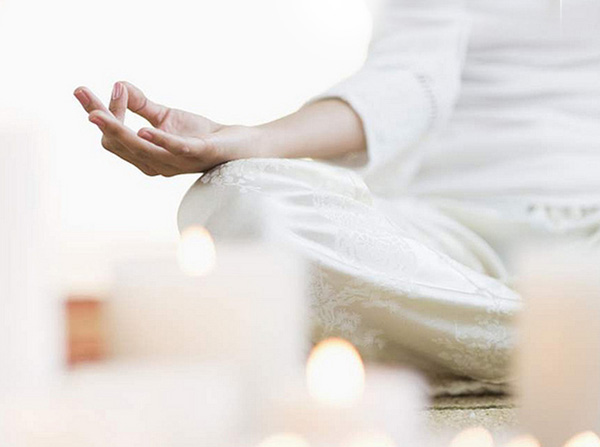A wise philosopher-thinker said, “Pain is inevitable but suffering is optional,” suggesting that in spite of the presence of physical pain, one can overcome its impact and reduce the suffering one might go through in life. In metaphysical terms, that's called “mind over matter” which helps transcend physical pain by mental discipline and appropriate mind de-conditioning/training, as seen with meditation.
Now that sounded 'all in the air' till scientists investigated the neural basis of it, and proved it right. In fact, the idea of 'mind over matter' in the West was known for centuries. Marcus Aurelius (the philosopher-thinker) suggested it in his quote, “Remove your opinion about what gives you pain and you stand painless.” But, scientific investigation into the phenomenon has been recent with some interesting observations and findings.
In earlier issues, we have dwelled on the benefits of meditation in improving our attention span thus proving its cognitive benefits. Additionally, reduced emotional reactivity by cultivating a sense of equanimity in distressing situations and the lowering of pain sensitivity are other benefits of meditation demonstrated in different investigative studies. What lends more solid and supportive credence to it is the fact that brain imaging studies in long-term meditators have demonstrated that meditation can induce changes at a physiological level by manifesting such beneficial effects.
In a research study done by scientists at Wake Forest University and published in The Journal of Neuroscience (April 2011), researchers explored the impact of meditation on pain perception. The study evaluated the effect of meditation on pain intensity and unpleasantness reported by subjects and changes in brain activation patterns were measured by functional MRI (Magnetic Resonance Imaging). Heat applied by a thermal simulator assessed the pain response. A comparative analysis reported a 40% reduction in pain intensity and a 57% reduction in unpleasantness associated with pain (measured by heat stimulus) after meditation training. Important finding in brain imaging scans suggested reduced activity in brain areas (somatosensory cortex) evaluating feeling of intensity of pain or emotional response to perceptive pain; scans before meditation showed activity in this region to be high. At the same time, scans demonstrated that meditation increased brain activity in the areas responsible for experiencing awareness of pain (primarily anterior cingulate cortex). The more these areas were activated by meditation, the more was the pain relief felt.
“The beneficial effect was possibly due to the dissociation of pain awareness with the attached emotional evaluation of pain,” said lead researcher Fadel Zeidan, a post-doctoral research fellow at the Wake Forest Baptist Medical Center. “This led the meditators to be aware of pain sensation, but did not let them focus on the disturbance normally associated with pain,” he further added. “Meditation was more effective in blocking pain possibly because it did not work at just one place in the brain, but reduced the pain at multiple levels of processing,” said Robert C. Coghill, another lead researcher and senior associate professor of neurobiology and anatomy at the Center. The findings clinically implicated that meditation produced greater reduction in pain than even morphine or other pain-relieving drugs, which typically reduce pain ratings by about 25%. “The study demonstrates that meditation produces real effects in brain and can provide effective to substantial reduction in chronic pain without medications,” said Zeidan.
In another similar study by Madison (University of Manchester) neuroscientists, long-term expert meditators felt discomfort to painful stimuli as intensely as novice meditators, but the experience wasn't as unpleasant for them. Thus, meditation was shown to reduce the emotional impact of pain. Brain scans revealed that advanced expert meditators were least likely to anticipate pain induced, which made the experience more bearable. Scientists were trying to find the mechanisms behind pain reduction and found that openness to painful stimuli led to a decrease in stress response (anxiety), which led to a reduced feeling of pain. Expert meditators demonstrated faster “neural habituation (repeated exposure leading to decreased response)” to pain and its anticipation than novice meditators. “Meditation trains the brain to be more present-focused and spend less time anticipating future negative events, thus reducing recurrence of depression which otherwise makes chronic pain considerably worse." said Dr. Christopher Brown, the lead researcher at the Manchester's School of Translational Medicine.
The other mechanism by which meditation leads to a lesser feeling of pain is by producing endorphins, which are natural pain relievers in the body. Meditation has also been shown to decrease the levels of stress hormones (e.g. cortisol and adrenaline), which otherwise increase anxiety during stressful stimuli like pain. Further, meditation also leads to increase in hormones like melatonin and DHEA, which help boost the immune system and promote a sense of calmness even during pain.
The study findings nicely sum up what Marcus Aurelius had said, “Any external pain that is making you distressed is more due to your own estimate of it, and you have the power to revoke it at any moment.” With such interestingly promising findings, this has implication in managing chronic pain through meditation, making it a low-cost intervention in managing chronic suffering inflicted due to it.
Conclusively, there is a definite, objective evidence of meditation leading to reduction in pain perception, and reducing the emotional impact of pain thus making it easier to bear. Now that gives you enough reason to tread the meditative path. And, just in case it inspires you to walk the road, Shri Ashutosh Maharaj Ji, the Founder and Head of Divya Jyoti Jagrati Santhan, and the Perfect Master of the present times, is disseminating the eternal technique of true meditation in the form of 'Brahm Gyan'. Make best use of the opportunity and reap innumerable benefits by practicing the 'Brahm Gyan' meditation technique!

